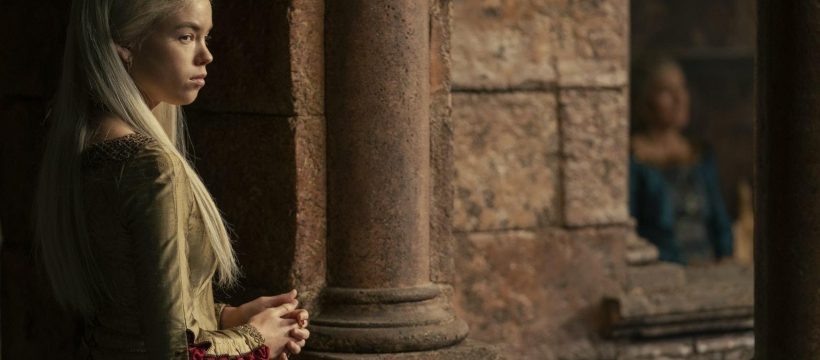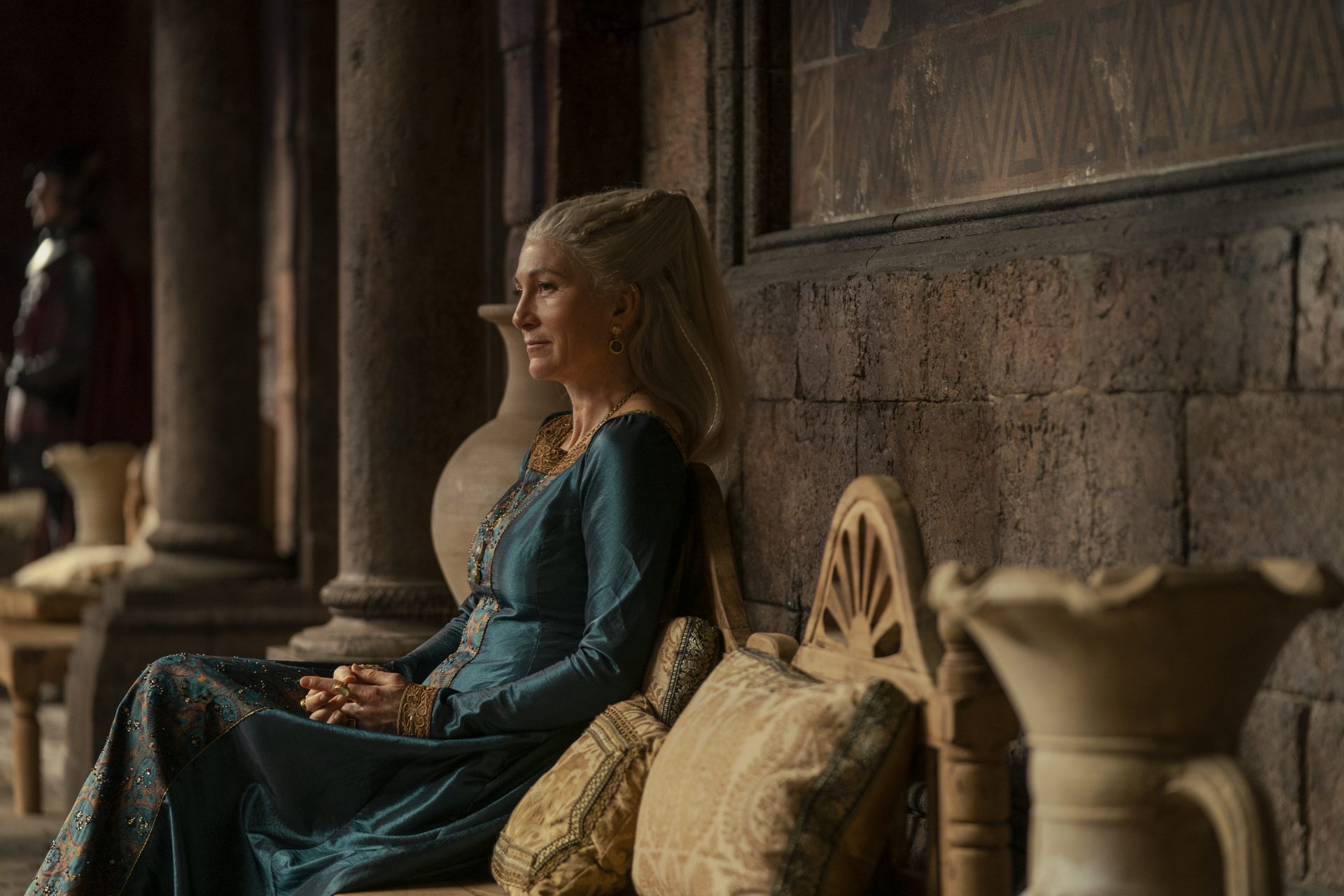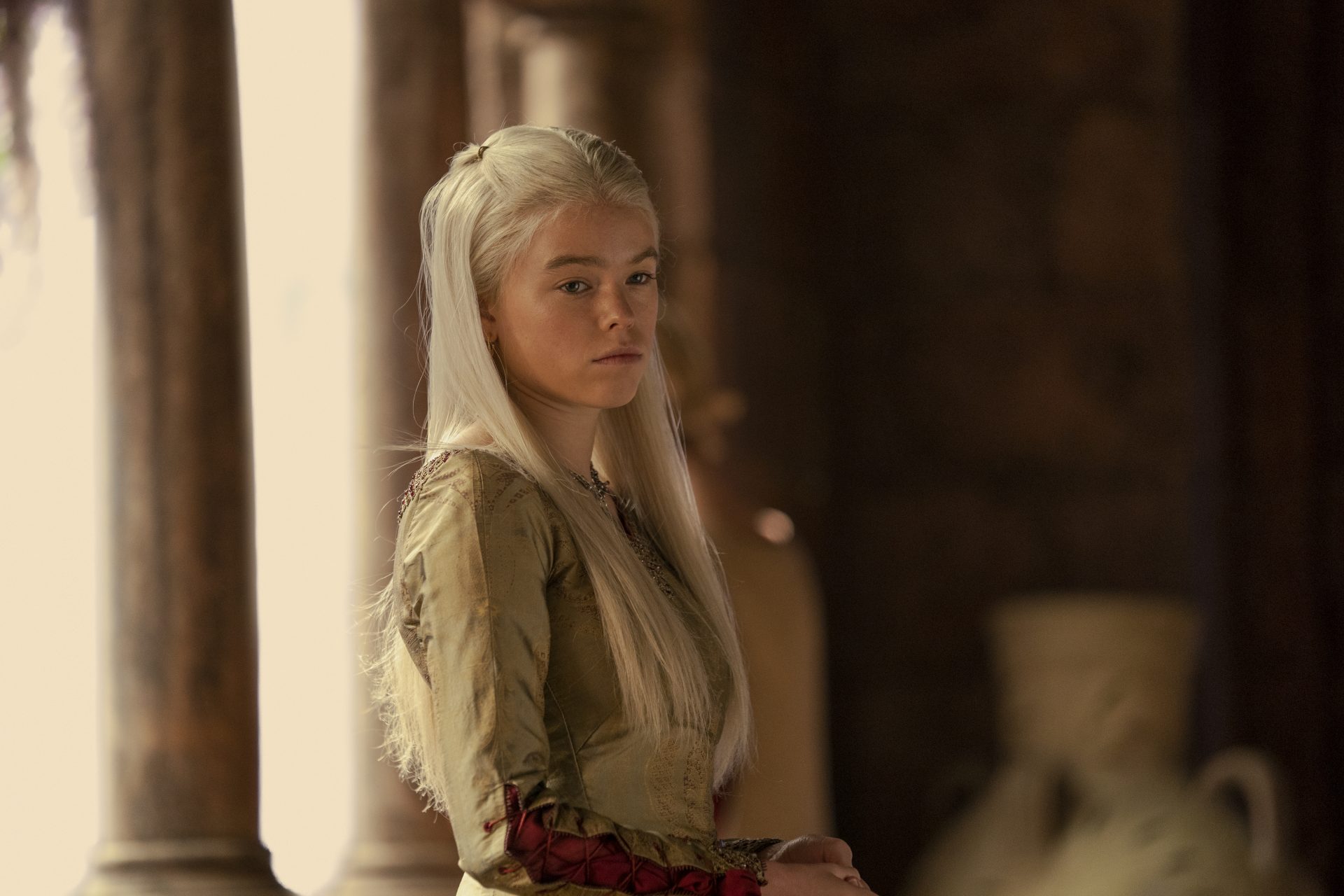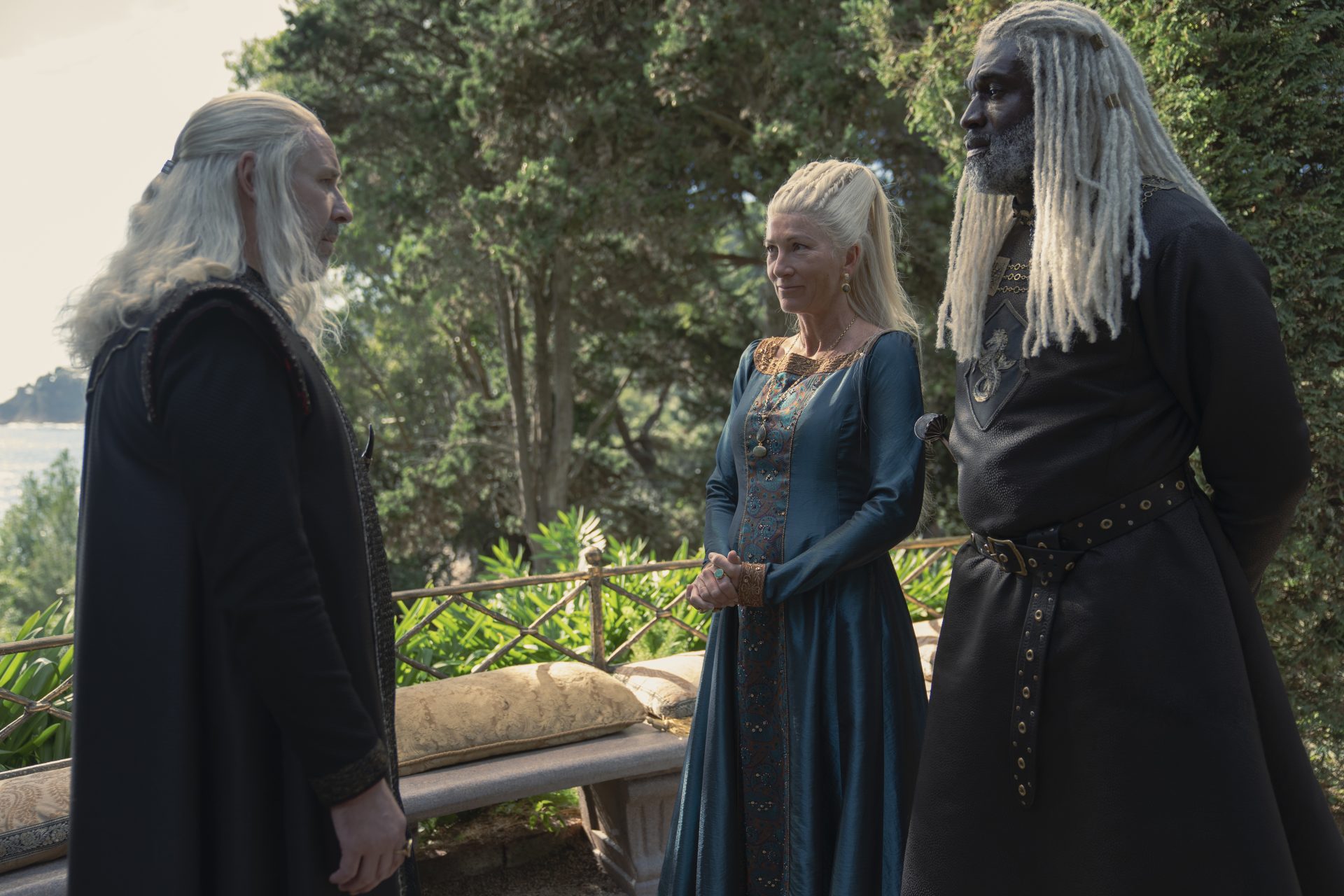In the second episode of HBO’s Game Of Thrones prequel House Of The Dragon, a tense conversation between Princess Rhaenyra and Princess Rhaenys reveals the corrosive impact of internalised misogyny.
Warning: this article contains spoilers for the second episode of House Of The Dragon.
It’s been just one week since the epic Game Of Thrones prequel series, House Of The Dragon, roared onto our screens and it’s already dominating pop culture like nothing else we’ve seen this year. While breaking records as the most-watched TV premiere in HBO history with a staggering audience of 10 million, the long-awaited spinoff has sparked plenty of talking points with its sex, gore, power struggles and fire-breathing dragons.
Based on George RR Martin’s Fire & Blood saga, the new series takes place nearly 200 years before the events in Game Of Thrones, and chronicles House Targaryen’slead up to the civil war known as the Dance Of The Dragons. So far, the show has given us insights into Prince Daemon Targaryen’s tyrannical nature (and creepy relationship with Princess Rhaenyra), Alicent Hightower’s skin-picking compulsion, and the bloodshed that occurs when a king orders an emergency unmedicated caesarean on his pregnant wife.
You may also like
House Of The Dragon: “Why that barbaric childbirth scene was absolutely unnecessary”
In the second episode of the series, titled The Rogue Prince, we find King Viserys (Paddy Considine) still grieving the death of his wife Aemma Arryn (Sian Brookes). Now, six months after her horrific demise, the King is being urged by his confidantes to secure the Iron Throne by taking a new wife. While his firstborn daughter, Princess Rhaenyra, understands the pressure on her father to remarry and gives him her blessing, she is visibly upset when she sees him walking in the castle grounds with Lord Corlys Velaryon’s (Steve Toussaint) 12-year-old daughter, Laena Velaryon (Savannah Steyn), who has been propositioned as a potential match.
As Rhaenyra looks on, Princess Rhaenys Targaryen (Eve Best) asks her if the sight of her father talking with her daughter bothers her. Rhaenyra curtly replies that she understands that her father must take a new wife, and asks Rhaenys if it bothers her to watch her daughter in the company of the King.
“Of course it does,” Rhaenys says sharply. “But I understand the order of things. I’m not sure you do.”
Here, Rhaenys alludes to the ongoing disappointment and humiliation she experiences as The Queen Who Never Was. You might recall that in the first episode of House Of The Dragon, Rhaenys, the oldest living grandchild of King Jaehaerys Targaryen, was favoured to be heir during the Great Council of Harrenhal.
However, the possibility of ruling on the Iron Throne was cruelly snatched away when the patriarchal lords of Westeros voted 10-to-1 in favour of Jaehaerys’s oldest living male grandchild and the offspring of his second son: Viserys. Denied the chance to become the first queen of Westeros, Rhaenys is now plagued by insults from the men of the court who refer to her as The Queen Who Never Was, just like the young Baratheon lord who asks for her favour during the jousting match in episode one.
Rhaenyra, however, is determined that she won’t be drawn into conflict.
“If you mean to elicit some anger from me, you should know that you’re failing, Princess,” she says irritably.
Rhaenys then replies that her intention is actually “quite the opposite”, and with more than a touch of condescension, says that whether the King marries her daughter or someone else’s, Rhaenyra’s father will remarry and produce new heirs, and “chances are better than not that one of those will be male”.
“When that boy comes of age and your father has passed, the men of the realm will expect him to be heir. Not you. Because that is the order of things,” Rhaenys says icily.
Rhaenyra, who is anything but the submissive princess Westerosi society expects her to be, then tells Rhaenys that when she becomes queen, she intends to create a new order. But Rhaenys swiftly shuts her down.
“The men of the realm already had their opportunity to appoint a ruling queen at the great council, and they denied it,” she says bitterly.
When Rhaenyra replies that it was Rhaenys who was denied the opportunity to rule, and that she has already been sworn in as heir to the throne, Rhaenys grows only more embittered.
“Do you remind your father’s men of that as you carry their cups?” she says scathingly.
“Here is the hard truth which no one else has the heart to tell you,” she continues, getting up from her seat to look down at the King in the grounds. “Men would sooner put the realm to the torch than see a woman ascend the Iron Throne.
“And your father is no fool,” she says with one final icy glare at Rhaenyra.
What’s interesting about this scene is what is left unsaid between Viserys’ heir-to-be and his spurned cousin. While on the surface of things, the pair spar over the question of whether a woman’s succession is possible in the patriarchal society of Westeros, the venom Rhaenys levels at Rhaenyra suggests that there is more to their tense relationship than the constant pain of having been rejected for the Iron Throne.
As I’ve mentioned before, House Of The Dragon, much like its predecessor Game Of Thrones, is capable of brilliant nuance in its storytelling and stylistic choices, even though the directors frequently err in favour of graphic scenes. Here, we see an older woman passed over for the Iron Throne on account of her gender. But her interaction with Rhaenyra seems to suggest that she is also threatened by the young princess. Every time Rhaenyra rebuts a barbed comment, Rhaenys grows ever more determined to put Rhaenyra in her place. And while Rhaenyra holds the unusual position of being named heir to the Iron Throne, Rhaenys’ condescending treatment of Rhaenyra and resentful comments suggests that she is angered by her on a personal level.
Ultimately, in Westerosi society, it is internalised misogyny that leads women to pit themselves against other women. And though we’ll have to wait to see how the relationship between Rhaenyra and Rhaenys plays out, its ripples are already corroding relationships in fascinating if not heartbreaking ways.
Images: HBO/Sky
Source: Read Full Article



